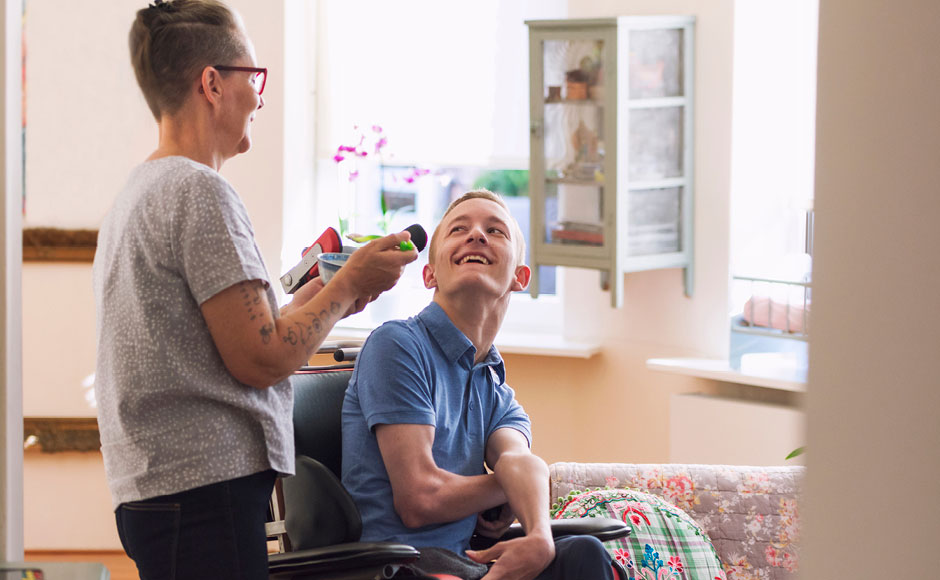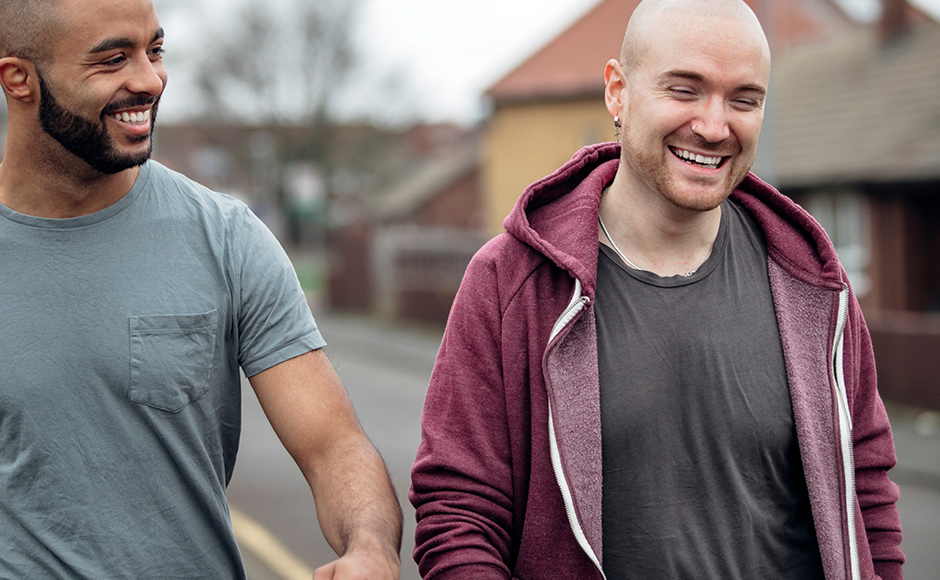Equality, Diversity and Inclusion group

The Church of Scotland's Equality, Diversity and Inclusion (EDI) Group aims to empower people across the church to celebrate the diversity of all God's people and to strengthen our culture of welcome.
Established by the General Assembly of 2021, the EDI Group is made up of ministers, office holders, Church members, and staff with an interest and expertise in relevant areas including theology, law, worship and a wide range of equalities issues.
Scottish and UK law places obligations on all organisations and individuals through statutes such as the Equality Act of 2010, which protects minority groups against discrimination and harassment. However, the General Assembly has adopted a far broader and more ambitious goal – that everyone can feel safe, valued and included in the life of the Church.
The group aims to identify existing barriers to full participation and to support presbyteries, employees, volunteers, and local congregations to build a culture that is equal, inclusive, and comfortable with diversity. The group has a sound theological foundation and will continue to explore the theological dimensions of its work as it progresses.
Working closely with the Assembly Trustees and supported by central offices staff, the group will:
- Seek input from experts and those with lived experience of equalities issues
- Carry out targeted research
- Provide opportunities for people to discuss equality, diversity, and inclusion within the Church
- Ensure church leaders, employees, and office holders have access to information and training relevant to their roles
- Raise awareness of changing expectations and best practices
- Highlight exemplary work underway in local churches
- Recognise congregations for their achievements
- Encourage and resource a network of supportive individuals
- Advocate for appropriate representation across the structures of the Church
- Work with ecumenical partners on equality issues
You can read the group's full remit and constitution information in the Terms of Reference.
The EDI group uses uses the nine protected characteristics in the Equality Act 2010 as a starting point for its work:
- Age
- Disability
- Gender reassignment
- Marriage and civil partnership
- Pregnancy and maternity
- Race
- Religion or belief
- Sex
- Sexual orientation
Theological basis for the work
Equality from a biblical perspective means recognising that all humans are created alike in the image of God (Genesis 1:26-28). All humans have equal dignity in the eyes of God (Psalm 8). All humans deserve respect, and all humans are equally loved by God (John 3:16). Christians are called to love their neighbour as themselves (Mark 12:31). In Jesus we are one and the divisions of this world are broken down (Galatians 3:28). We are called to a form of discipleship marked by justice, fairness, acceptance and love (Amos 5:24; Psalm 89:14; Luke 4:18-19; John 15:12).
A fundamental feature of the body of Christ is unity-in-diversity (1 Corinthians 12). With regard to the work of the Equality, Diversity and Inclusion group, diversity simply means a range of difference. In the context of diversity and inclusion, diversity means that the makeup of an organisation is diverse up and down the line, and the value of those differences is appreciated.
The principle of inclusion and belonging (inclusion being that which the law insists upon; belonging being a willingness to love our neighbour. Both are required.) implies actively inviting people into your environment and consciously ensuring that your environment doesn't exclude people because of their characteristic. "A sense of belonging: feeling respected, valued for who you are; feeling a level of supportive energy and commitment from others so that you can do your best" (Miller and Katz (2002)). We might describe this in terms of "homefulness". The theme of "homefulness" stresses both being with and belonging with God and being with and belonging with the neighbour in community. (Walter Brueggemann, The Practice of Homefulness.)
Current work
Challenging racism
During 2020, issues of equality came to the fore as people around the world called for racial justice. Ahead of the General Assembly, Church of Scotland minister Rev Mandy Ralph urged the Church to be more vocal about challenging racism. The General Assembly of 2020 reaffirmed that racism is a sin, declared that black lives matter, and initiated a wide-ranging consultation on the issue of racial justice and the legacy of slavery. The Faith Impact Forum has begun this work and will make a progress report to the General Assembly in 2023.
At the same time, the EDI Group has brought together a research group to listen to the experiences of people from ethnic minority backgrounds within the Church and to make recommendations. The groundwork has been completed and the group will initiate a formal research project starting in January 2022.
Welcoming those with disabilities
The Disability Inclusion Working Group (DIWG) seeks to cultivate communities of belonging for all. It is committed to empowering and working with people with disabilities to explore the barriers they face and how worship and church life can be made more accessible.
With the help of internal teams, external accessibility organisations, congregations and those who have lived experience of disability, the DIWG is carrying out research in order to develop new resources for churches. These resources will help churches ensure they are inclusive places where everyone can find a sense of belonging and participate in all aspects of church life. The research into accessibility will also be used to shape disability inclusion content for the Church's training programmes, and to enable access for everyone to all forms of ministry training.
The DIWG work to resource the Church to ensure inclusive accessibility includes the publication of a statement on a theology of disability. There are also other resources available for those who would like to explore more inclusive worship.
Katrona Templeton, a pioneer worker appointed by Irvine and Kilmarnock Presbytery to facilitate inclusion for people with disabilities, has spoken to the group about changes that can be made to enable disabled people to participate fully in worship and the life of the Church. She leads the Reachout Together disability inclusion project, which work alongside and in partnership in other parishes to build bridges between the disabled community and the church and create new worshipping communities.
Future work
The group plans to work on other aspects of equality, diversity and inclusion through addressing the overall culture of the Church. Over time the group will initiate other projects that cover all nine protected characteristics under the 2010 Equality Act.
How to contribute
If you are interested in being part of a network or supporting this work please email the group at EDI@churchofscotland.org.uk
Reflection

Being made in God's image does not mean negating our differences, but to embrace diversity as a sign of God's creativity and fullness of gifts. When we recognise each other's differences and are open to how they might shape our experiences of the world, then they can be enriching rather than dangerous and divisive. Through them, we will discover more about who God is and begin to live up to our vision of being made equal.
When the Holy Spirit came upon Jesus' disciples on Pentecost, they did not start to speak the same language, but they started to understand each other while they were still speaking in different tongues. (Acts 2)
Our aspiration therefore is to grow in understanding one another: to listen attentively, to hear what we need to hear, to learn from one another and to strive for reconciliation where necessary.
"By this everyone will know that you are my disciples, if you love one another." (John 13,35)